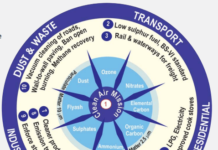Prof. Jagdish N. Sheth’s books are popular because they are less theoretical and more action driven. His latest one, co-authored with Suhas Apte, ‘The Sustainability Edge – How to Drive Top-Line Growth with Triple-Bottom-Line Thinking,’ published by the University of Toronto Press, tries to solve business leaders’ biggest problem today by providing a manual/guide about HOW To translate their intention to transform their enterprises into sustainable entities. Excerpts of his interview with Benedict Paramanand, Editor of SustainabilityNext
Please tell me about the timing of your new book
Public policy is already beginning to mandate sustainability as a requirement. The cost of non-compliance can be very costly. The big question is how do you do it.
This book is written from a stakeholder perspective, not shareholder perspective alone. It’s not enough to do sustainability internally; you need to engage with eight or nine stakeholders outside your organization as well. Which means sustainability is more of a marketing problem.
We asked ourselves this question: ‘How does a company which believes in sustainability market it to all its stakeholders.’ The notion is sustainability is not a journey just for yourself.
Companies typically relate to sustainability as a cost problem, not a marketing problem…
Sustainability is clearly a marketing problem. You have to motivate, persuade and influence your stakeholders just like the way marketing does for brands. The question is how you do it in a positive way involving communities, families, shareholders, customers, government and others.
We came out with 9 stakeholder framework. Key three stakeholders are customers, employees and shareholders; then community, suppliers, media (which is a powerful influencing mechanism) then government. The one involving investors was a tricky one. In the book we have shown that companies who have invested in sustainability have outperformed the market. Essentially, doing well is doing good.
Suhas Apte, co-author and former sustainability head of Kimberly Clark, got in touch with chief sustainability officers of several organizations. We were surprised at how much has been done. The ‘how to’ manual in the book is Suhas’ contribution.
Web-based Database
Along with being a roadmap and a guide, the book offers a self-audit system for individual firms and helps in monitoring their progress.
In a first of its kind, Suhas is putting together a portal which offers companies to voluntarily upload their data about their sustainability outcomes. He will start recruiting companies to volunteer soon. The portal will lead to constant dialogue between organizations. The idea is very powerful. It helps create a social group among sustainability practitioners who will know, in real time, where they are in the journey. Peer pressure will add an element of competition which is good for everyone.








